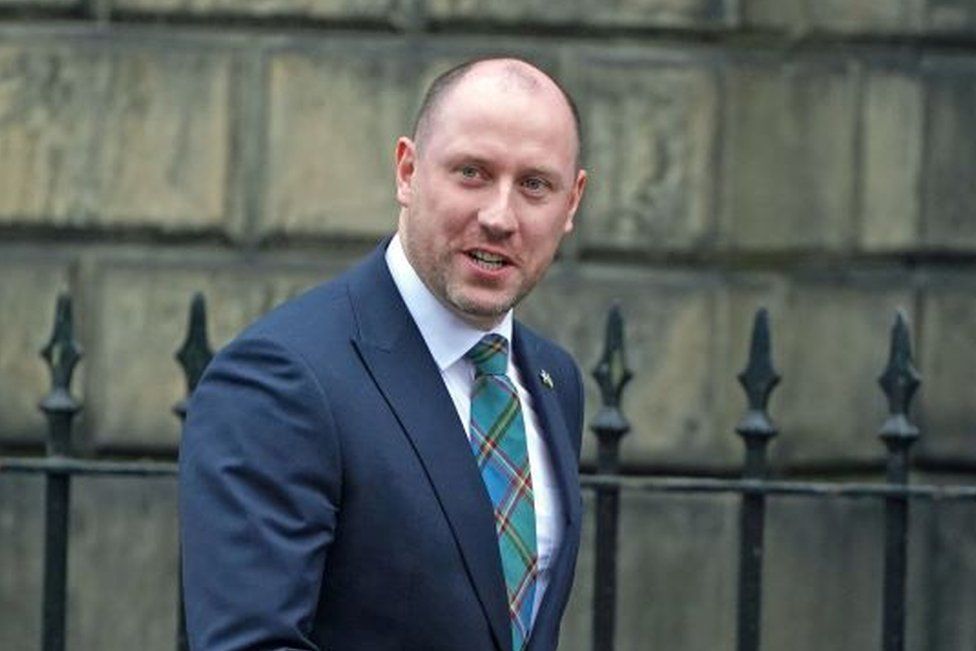- A "new deal" between the Scottish government and business has been forged in the midst of some unusually vehement and outspoken criticisms of the issues that have been allowed to fester.
- Scottish ministers have agreed to consult with business on the feasibility and cost of reforms at a much earlier stage of their planning after high-profile policies were abandoned.
- The "new deal" process has provided a platform for advocating for sweeping changes to business rates and expressing doubt about integrating wellbeing into the operations of private companies.
Business has returned to St. Andrew's House and has managed to extract some commitments from Scottish government ministers in an effort to ensure that it won't be able to be excluded so easily in the future.
The pre-Holyrood recess wash-up of announcements included a review of relations with Scotland's business communities. At the same time, Mairi McAllan, the cabinet secretary in charge of the plans for safeguarding Scotland's marine environment, was tossing them into the trash of shame.
The Highly Protected Marine Areas (HPMAs) plan, which has generated considerable controversy, is the most recent in a long line of policies that have failed when they come into contact with either business, reality, or both.
You probably remember the DRS, or deposit return scheme. In the earlier years of Humza Yousaf's premiership, he defeated attempts to outlaw alcohol advertising.
The private business sector of care provision was the only one to voice its concerns about the National Care Service, which faced opposition on many fronts. That is also being paused and reconsidered.
Mr. Yousaf acknowledged that the leadership race had made it clear that business relations were far from ideal. Some people whose job it is to recruit people from the private sector will admit in private that the competition was a great way to get heard.
A New Deal with Business was thus made early on, to be shaped by Neil Gray, a new cabinet secretary who entered the cabinet room with more vigor and enthusiasm than some of his more seasoned and battle-scarred colleagues.
The outcome of that engagement included commitments to consult with business before releasing future policies for public comment and to conduct more thorough impact analyses of suggested changes.
Prof. Russel Griggs, a seasoned troubleshooter, will take the helm of a task force on better business regulation that was abandoned at the beginning of Covid.
Before plans are made public, civil servants and ministers must take into account factors such as practical application, unintended consequences, and simple workability.
The Scottish government's 40-page report, which was released on Thursday, does not downplay how businesses feel.
It claims that "the development of government policy lacks openness and transparency, which has resulted in a lack of credibility and trust on the part of business.".
The lack of data use in policymaking is criticized, and it is claimed that businesses are not involved early enough in the policy cycle.
Although reading these opinions in a Scottish government document is unusual, they are not shocking.
This suggests a high scunner factor and "what have we got to lose?" since lobbying government is typically done in more diplomatic terms.
The limitations that business representatives see in government were clearly stated at the St. Andrew's House table: "A better process for engagement with business will give policymakers access to those in business, who by definition are creative, innovative, and practical.". contrary to, say. ?

And the report on partnership working was just one of the results from the subgroups. The agenda for the regulation session was much larger.
The recent policies on alcohol advertising, bottle deposits, and marine protection have caused issues in that area. And that's where the most progress has been made in getting ministers to keep their word about providing forewarning of potential policy proposals.
The fact that businesses recycle almost all of their glass already clearly irked people about the bottle deposit scheme, and there were concerns the Scottish government's proposed plan might lessen the amount of glass being recycled.
So it is made clear that before telling business to do something else that might be less effective, officials might prefer to find out what is already being done by business to accomplish a goal.
There was a business rates sub-group, which is also very unpopular and made somewhat less progress toward the significant reform that some business participants want to see. At least they've kept it up for discussion in the future.
This "new deal" sub-group drew attention to the fact that some industries, like retail and hospitality, receive less business rates relief in Scotland than in England.
The Scottish Chambers of Commerce recommended that the Scottish government offer a business grant to cover the cost of implementing its policy.
The wellbeing economy was the subject of a subgroup's report that was very skeptical of the idea.
The group seemed to spend its time debating the definition, characteristics, and metrics of a wellbeing economy. It came to the conclusion that the first goal of policy should be to clarify what the ministers are talking about.
So what? They then ask the Scottish government to explain why they should be concerned, what this means for their business, and how they should react.
Using the appropriate language when speaking with businesses is the main lesson we took away from this experience, according to the report. "Only a small percentage of people would understand what a 'wellbeing economy' was, and the terminology used to describe it can scare away business owners because it sounds official and academic. ".
When it comes to the question of "whose wellbeing?," business is even more skeptical and indignant.
It states that implementing fair and inclusive work is "one of the most significant ways in which many businesses support Scotland's transition to a wellbeing economy.".
It further argues that while some aspects of the wellbeing economy are focused on employees, business owners' wellbeing is just as important.
It refers to the vast majority of Scotland's hundreds of thousands of self-employed people, many of whom run businesses and are "very low paid and under significant pressures"; one example is farming, which has one of the highest suicide rates among all professions.

So far, it appears that the process of arriving at that New Deal for Business has provided a venue for letting off steam as well as for laying out short-, medium-, and long-term goals. The next phase might be less contentious if some policies are revised again and ministers are willing to listen.
However, the following phase will involve even more challenging choices regarding how to get the economy to net-zero carbon emissions. That includes significant obstacles and expenses for businesses, not just in Scotland.
Then, as part of a redistribution agenda, the first minister is committed to using the tax system to impose more on those who are most able to pay it. The discussion shifts to the new advisory board for those tax reforms for the Scottish government. As the New Deal document was published, its membership of academics and other tax experts was announced.
The finance secretary, Shona Robison, cannot be accused of selecting people who will make her life simple. .
A fascinating test of how well that new deal is working will be the proposed changes.








